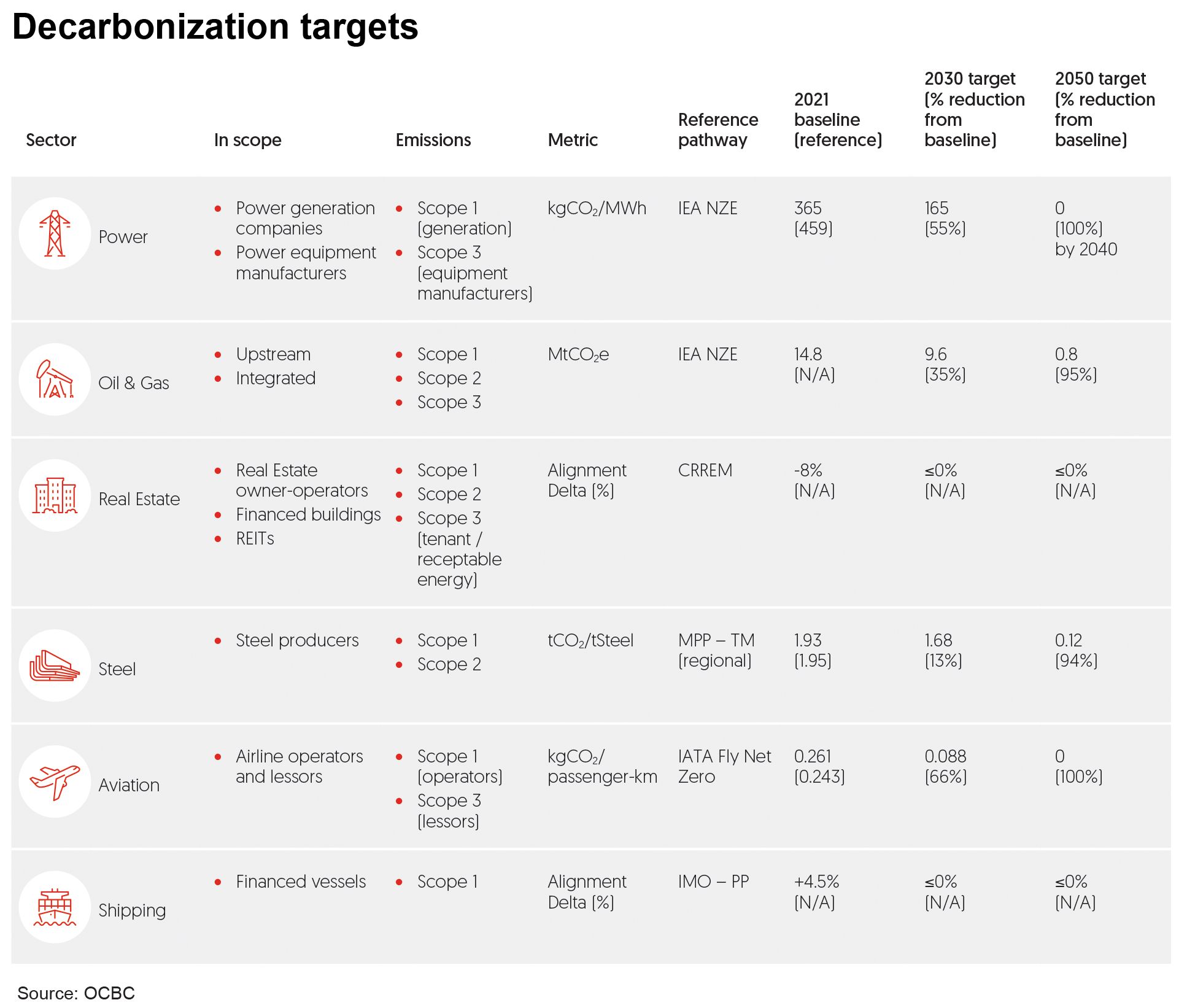Singaporean lender OCBC has unveiled its decarbonization targets for six sectors and the key actions it will take to meet the targets as part of its commitment to achieve net zero in its financed emissions by 2050.
The six sectors – power, oil and gas, real estate, steel, aviation, and shipping – represent the most greenhouse gas emission intensive sectors that the bank finances.
According to its report, Partnering Clients Towards a Net Zero Asean and Greater China, 42% of OCBC’s corporate and commercial banking loan portfolio falls within the scope of the targets.
The bank will focus on parts of the sector value chains responsible for the majority of the emissions. The availability of established and credible reference pathways for these sub-sectors is another key consideration.
Notably, OCBC will not extend project financing to upstream oil and gas projects that obtained approval for development after 2021, as part of its decarbonization efforts for this sector. This is on top of the target of 35% reduction in absolute emissions by 2030 for the sector that the bank has set.
The bank has set interim targets for 2030 as a checkpoint to ensure that it is on track towards its 2050 goal. The targets will be reviewed periodically, at least once every five years, as climate science evolves and more data from clients become available.
According to its report, OCBC expects to achieve 100% reduction in carbon emissions for the real estate and shipping sectors by 2030. For the power sector, the bank aims for 55% reduction of carbon emissions by 2030 and 100% reduction by 2050.
For the steel sector, the emission reduction targets are 13% by 2030 and 94% by 2050, and for the aviation sector, 66% by 2030 and 100% by 2050.

The targets are aligned with internationally recognized, science-based pathways geared towards achieving a net-zero level of greenhouse gas emissions by 2050 to limit global warming to 1.5°C, OCBC says.
To drive the transition journey, the bank says it will continue to develop sustainable financing solutions for its corporate clients to finance their green and transition business activities.
It will also deepen collaboration with stakeholders, from customers and regulators to green technology innovators, to co-create an ecosystem that will help catalyze the development and adoption of innovative technology solutions to accelerate decarbonization.
Helen Wong, OCBC Bank group chief executive officer, says: “Our sectoral net-zero targets are ambitious, quantitative and grounded in science. We will partner our corporate clients to meaningfully contribute to a net-zero Asean and Greater China by 2050 in an orderly and just transition. These targets are a culmination of months of hard work by many colleagues bank-wide and in our core markets of Asean and Greater China.
“Beyond the numbers, this exemplifies key aspects of our vigorously partnership-based approach. I firmly believe that a more sustainable world can be created so long as we are united with our clients and communities in pursuing one.”








